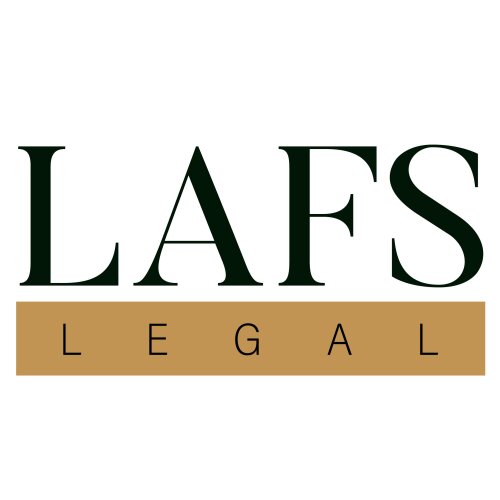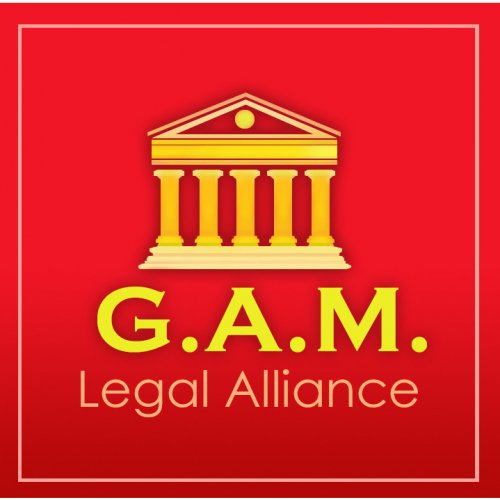Best Nonprofit & Charitable Organizations Lawyers in Bangkok
Share your needs with us, get contacted by law firms.
Free. Takes 2 min.
List of the best lawyers in Bangkok, Thailand
Legal guides written by SIAM LEGAL INTERNATIONAL:
- Defamation Laws in Thailand: Criminal Charges and Civil Suits
- The State of Thailand’s Long-Term Resident (LTR) Visa Program in 2025
- The Penalties Of Not Filing Your Income Tax Return As A Foreigner In Thailand
Legal guides written by Smart Legal Solutions:
- Main Legal Measures to Protect Foreign Investment in Thailand
- The importance of the geographical indications for the Thai economy
About Nonprofit & Charitable Organizations Law in Bangkok, Thailand
Nonprofit and charitable organizations in Bangkok, Thailand, operate under a specific legal framework that governs their establishment, operation, and dissolution. These organizations play a significant role in addressing social, environmental, educational, and cultural issues within the community. The legislation regulating nonprofit and charitable organizations ensures transparency, accountability, and compliance with the intended philanthropic objectives. Typically, these organizations must register with relevant governmental bodies and adhere to specific reporting requirements to maintain their legal status.
Why You May Need a Lawyer
Engaging with a lawyer experienced in nonprofit and charitable organization law can be crucial in several situations. Establishing a nonprofit entity requires complying with numerous legal formalities and ensuring the organization's structure aligns with Thai laws. Furthermore, an attorney can assist with understanding the complex regulatory requirements, such as tax exemptions and compliance with employment law related to staff and volunteers. Lawyers also provide guidance on legal issues related to fundraising activities, international operations, and potential mergers or collaborations with other entities.
Local Laws Overview
The legal landscape for nonprofit and charitable organizations in Bangkok involves several key components. The primary legislation includes the Civil and Commercial Code, which provides the basic framework for the operation of legal entities in Thailand, and specific regulations under the Ministry of Interior, which oversees the registration of associations and foundations. Organizations must comply with accounting and financial reporting standards, including an annual audit for foundations. Additionally, there are strict guidelines regarding foreign funding and the involvement of non-Thai nationals in nonprofit activities, necessitating legal scrutiny.
Frequently Asked Questions
What is the difference between an association and a foundation in Thailand?
An association is a group formed for a specific purpose, whereas a foundation is generally established for a more permanent charitable or educational purpose, often with an endowment.
Can a foreign national establish a nonprofit in Thailand?
Yes, a foreign national can establish a nonprofit in Thailand; however, they must comply with specific conditions, such as having Thai nationals on the board of the organization.
Are there tax benefits for nonprofit organizations in Thailand?
Yes, nonprofit organizations in Thailand may qualify for certain tax benefits, including exemptions from corporate income tax and reduced tax rates on specific activities, subject to various conditions.
How can a nonprofit organization register in Bangkok?
To register a nonprofit in Bangkok, one must submit an application to the Ministry of Interior, along with required documentation such as objectives, bylaws, and the details of board members.
What are the reporting requirements for nonprofits in Thailand?
Nonprofits must maintain accurate financial records, conduct annual audits, and submit reports to the authorities to ensure compliance with legal standards.
Can nonprofits engage in commercial activities?
Yes, nonprofits can engage in commercial activities; however, the profits generated must be used to further the organization's stated missions and not for personal gain.
What are the penalties for non-compliance with nonprofit laws?
Penalties for non-compliance include fines, suspension of operations, and potentially the revocation of registration, rendering the organization illegal.
How can nonprofits receive foreign funding legally?
Nonprofits can receive foreign funding if they disclose such funds to the authorities and comply with regulations governing the acceptance and use of these funds.
What governance structure is required for a nonprofit in Thailand?
A nonprofit must have a clear governance structure, including an executive board with defined roles and responsibilities, as outlined in its bylaws.
Can a nonprofit be dissolved, and if so, how?
A nonprofit can be dissolved voluntarily by its members or involuntarily by government order for serious non-compliance. The process involves liquidation and the settlement of debts.
Additional Resources
For more information, you may consider contacting the following resources: the Ministry of Interior, the Thai Revenue Department for tax-related queries, and local legal aid organizations that specialize in nonprofit law. Additionally, the Thai Foundation for International Human Relations and Development offers guidance and resources for nonprofit operators.
Next Steps
If you require legal assistance in the field of nonprofit and charitable organizations, consider consulting with a specialized attorney who is well-versed in Thai laws. Collect all necessary documentation regarding your organization, such as founding documents, financial records, and any correspondence with governmental agencies. Then, schedule a consultation to discuss your specific situation and legal needs, ensuring the lawyer can provide tailored advice and representation.
Lawzana helps you find the best lawyers and law firms in Bangkok through a curated and pre-screened list of qualified legal professionals. Our platform offers rankings and detailed profiles of attorneys and law firms, allowing you to compare based on practice areas, including Nonprofit & Charitable Organizations, experience, and client feedback.
Each profile includes a description of the firm's areas of practice, client reviews, team members and partners, year of establishment, spoken languages, office locations, contact information, social media presence, and any published articles or resources. Most firms on our platform speak English and are experienced in both local and international legal matters.
Get a quote from top-rated law firms in Bangkok, Thailand — quickly, securely, and without unnecessary hassle.
Disclaimer:
The information provided on this page is for general informational purposes only and does not constitute legal advice. While we strive to ensure the accuracy and relevance of the content, legal information may change over time, and interpretations of the law can vary. You should always consult with a qualified legal professional for advice specific to your situation.
We disclaim all liability for actions taken or not taken based on the content of this page. If you believe any information is incorrect or outdated, please contact us, and we will review and update it where appropriate.

















